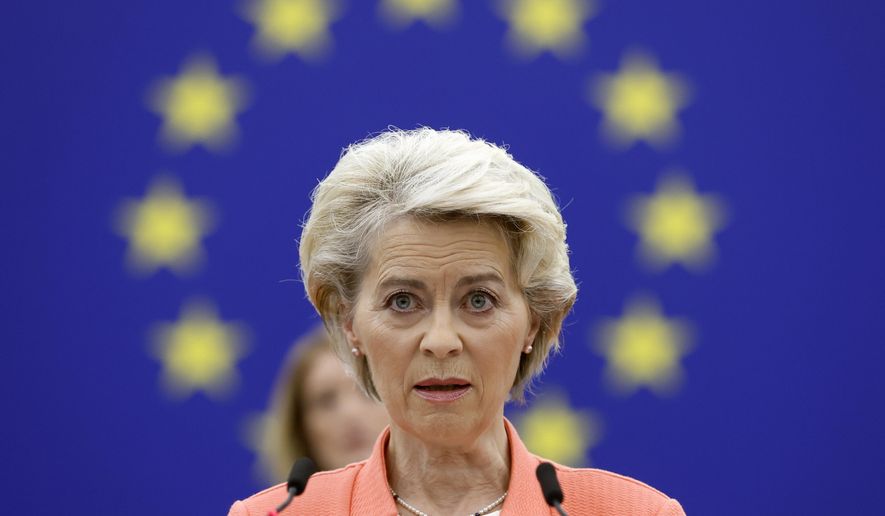BRUSSELS — The head of the European Union’s executive arm vowed Wednesday to introduce checks on key EU infrastructure, including energy, after the suspected sabotage of natural-gas pipelines in the Baltic Sea.
European Commission President Ursula von der Leyen said the damage last week to the Nord Stream pipelines linking Russia and Germany has “shown how vulnerable our energy infrastructure is” and a comprehensive plan is needed to ensure the safety of key EU networks, including for data.
“We need to stress test our infrastructure,” von der Leyen told the European Parliament in Strasbourg, France. “We need to identify whether we have weak points and where these weak points are.” She also said that satellite surveillance will be used to detect potential threats.
Amid Russia’s seven-month war against Ukraine and western military support for the Ukrainian government, the Nord Stream damage resulted from undersea blasts caused by several hundred pounds of explosives in four locations off southern Sweden and Denmark. The explosions caused big methane leaks in the Baltic Sea.
Because EU countries are responsible for overseeing energy and other basic infrastructure in the bloc, von der Leyen said her safety push would involve national capitals.
“We will work with member states to ensure effective stress tests in the energy sector,” she said. “This then should be followed by other high-risk sectors, such as the offshore digital and electricity infrastructure.”
PHOTOS: Top EU official vows to ‘stress test’ pipelines after leaks
Also in Strasbourg on Wednesday, EU foreign policy chief Josep Borrell predicted that the bloc’s 27 national governments would agree to hit Russia with new sanctions in response to its illegal annexation of four regions in Ukraine that make up around 15% of Ukrainian territory.
The planned new penalties include a price cap on Russian oil, curbs on EU exports of aircraft components to the country and limits on imports of Russian steel. EU member-state diplomats were aiming to approve the new package as soon as Wednesday in Brussels.
The new penalties build on already unprecedented European sanctions against Russia as a result of its war against Ukraine since February.
EU measures to date include restrictions on energy supplies from Russia, bans on financial transactions with Russian entities including the central bank and asset freezes against more than 1,000 people and over 100 entities.




Please read our comment policy before commenting.